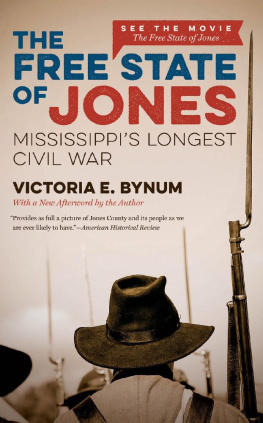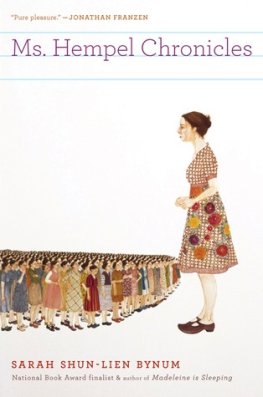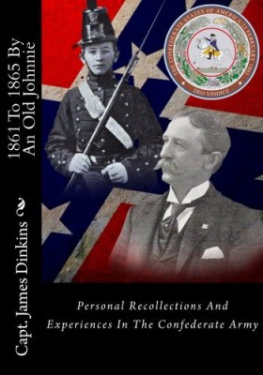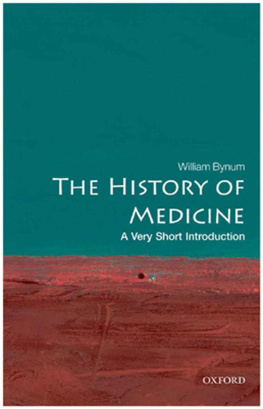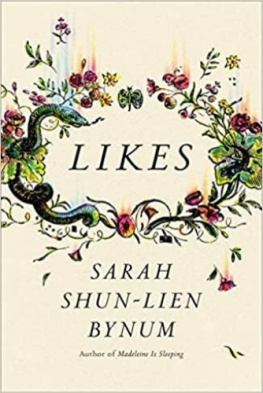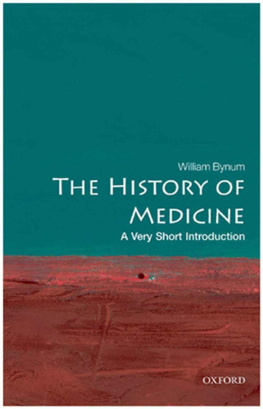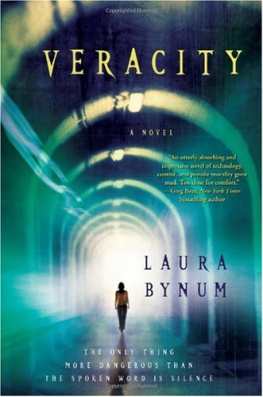Between late 1863 and mid-1864, an armed band of Confederate deserters battled Confederate cavalry in the Piney Woods region of Jones County, Mississippi. Calling themselves the Knight Company after their captain, Newton Knight, and aided by women, slaves, and children who spied on the Confederacy and provided food and shelter, they set up headquarters in the swamps of the Leaf River. There, legend has it, they declared the Free State of Jones.
In this Civil War Short, excerpted from The Free State of Jones: Mississippi's Longest Civil War, Victoria Bynum traces Newton Knight's story from his enlistment in the Confederate army to his desertion and formation of the Knight Company and to the violent clashes with Confederate authorities that culminated in the infamous Lowry raids of 1864.
Victoria E. Bynum is Distinguished Professor Emeritus of history at Texas State University, San Marcos. She is author of The Long Shadow of the Civil War: Southern Dissent and Its Legacies and Unruly Women: The Politics of Social and Sexual Control in the Old South.
UNC Press Civil War Shorts excerpt compelling, shorter narratives from selected best-selling books published by the University of North Carolina Press and present them as engaging, quick reads. Produced exclusively in ebook format, these shorts present essential concepts, defining moments, and concise introductions to topics. They are intended to stir the imagination and encourage further exploration of the topic. For in-depth analysis, contextualization, and perspective, we invite readers to turn to the original publications from which these works are drawn.
Rebels against Confederate Mississippi consists of the introduction, chapters 5 and 6, and the epilogue from The Free State of Jones: Mississippi's Longest Civil War, by Victoria E. Bynum. 2001 The University of North Carolina Press. All rights reserved.
www.uncpress.unc.edu
The Library of Congress has cataloged the original edition of this book as follows:
Bynum, Victoria E. The free state of Jones: Mississippis longest civil war / by Victoria E. Bynum. p. cm.(The Fred W. Morrison series in southern studies) Includes bibliographical references (p. ) and index. ISBN 0-8078-2636-7 (cloth: alk. paper).
1. Jones County (Miss.)History19th century. 2. Jones County (Miss.)Social conditions 19th century. 3. Military desertersMississippi Jones CountyHistory19th century. 4. Unionists (United States Civil War)Mississippi Jones County. 5. MississippiHistoryCivil War, 1861-1865Social aspects. 6. United StatesHistoryCivil War, 1861-1865Social aspects. 7. Knight family. 8. Racially mixed people MississippiJones CountyHistory19th century. 9. Jones County (Miss.)Biography. I. Title. II. Series. F347.J6 B95 2001 976.255dc21 2001027040 05 04 03 02 01 5 4 3 2 1
UNC Press Civil War Shorts ebook edition published in 2012
ISBN: 978-0-8078-3850-1
For more information on UNC Press ebook shorts, visit www.uncpressebookshorts.com.
Introduction
Sacred Wars
Race and the Ongoing Battle over the Free State of Jones
No, [Rachel] wasnt no half-mixture, wasnt no half-mixture to it.
Tom Knight, trial of Davis Knight, 1948
[Rachels] hair was curly, wasnt no kinky about it.
Henry Knight, trial of Davis Knight, 1948
In December 1948 the Jones County Circuit Court in Ellisville, Mississippi, debated the racial identity of Rachel Knight, a woman who had been dead for fifty-nine years. At stake was the fate of her twenty-three-year-old great-grandson, Davis Knight, who was on trial for the crime of miscegenation. Davis, a white man in physical appearance, had married Junie Lee Spradley, a white woman, on April 18, 1946. Whether Davis was white or black, and therefore innocent or guilty of marrying across the color line, hinged on the racial identity of a distant ancestor whom he had never met, but who still excited the memories and passions of older citizens of Jones, Jasper, and Covington Counties in southeastern Mississippi.
For four days in the Ellisville courthouse, Davis Knights neighbors and relatives argued over whether Rachel Knight was a Creole, an Indian, or just a regular Negro woman. Of special interest to the court was Rachels relationship to Newton Knight, the legendary leader of Mississippis most notorious band of deserters during the Civil War. In 1948, however, the state of Mississippi expressed no interest in Newts Civil War exploits but only in the intermarriages of his daughter Molly and son Mat with Rachels son Jeff and daughter Fannie. These marriages, contracted around 1878, began the mixed-race community of so-called white Negroes into which Davis Knight was born; thus, both Newton and Rachel were his ancestors.
How had Davis Knight managed to avoid legal entanglement and maybe even a lynching before 1948? After all, he had been married for two years before the court indicted him. Perhaps it was his light skin that allowed him to pass, at least outside his immediate community, but probably equally important was who his white ancestors were. His legal problems in 1948 were precipitated not only by local and national developments but also by his connections to the infamous Newt Knight.
In the years surrounding Davis Knights marriage, his great-grandfather received an unusual amount of public attention. Journalist James Street, who grew up near Jones County, was inspired by tales he had heard as a boy to write the popular Civil War novel Tap Roots (1943), about Captain Newt Knight and his band of deserters. Determined to offer readers a radically different Civil War South from the one portrayed in Margaret Mitchells Gone with the Wind, Street abandoned the world of mansions, cotton fields, and the noble cause. Instead, he highlighted pro-Union Southerners, centering his story around the fictional Dabney family of Lebanon County in southeastern Mississippi. Although Street denied having modeled the books main character and hero, Hoab Dabney, after Newt Knight, he did acknowledge the influence of Newt, whom he called a rather splendid nonconformist.
On the heels of Tap Roots, Thomas Jefferson Knight expanded and republished The Life and Activities of Captain Newton Knight, a biography of his father originally released in 1935. Tom portrayed Captain Newt as a principled Robin Hood who had defied the Confederacy and created the Free State of Jones in order to protect the communitys women and children from its depredations. In Toms biography, however, he omitted an open secret long whispered in Jones County: that his father had crossed the sexual color line during the war with a former slave woman named Rachel and that his own sister and brother had later married children of Rachel.
Except for occasional gossip and rumors, white branches of the Knight family had mostly ignored their interracial branch. In fact, nearly all published accounts of Newts life ignored the mixed-race community in which he lived after the Civil War. Tom Knights own erasure of Rachel from the narrative of his fathers life enabled him to replace painful memories of miscegenation with a glorified interpretation of his fathers Civil War behavior.
Thanks to Tom Knight and James Street, Newt reemerged as a folk hero, but the notion that Confederate deserters might be heroes disturbed many Mississippians. By the 1940s many decades of Lost Cause education had created far more reverence for the Confederacy than existed in the 1860s. Members of the Knight family whose ancestors fought for the Confederacy seemed particularly galled by Newts renewed fame, especially when Tap Roots was released in 1948 as a movie starring Van Heflin and Susan Hayward.


